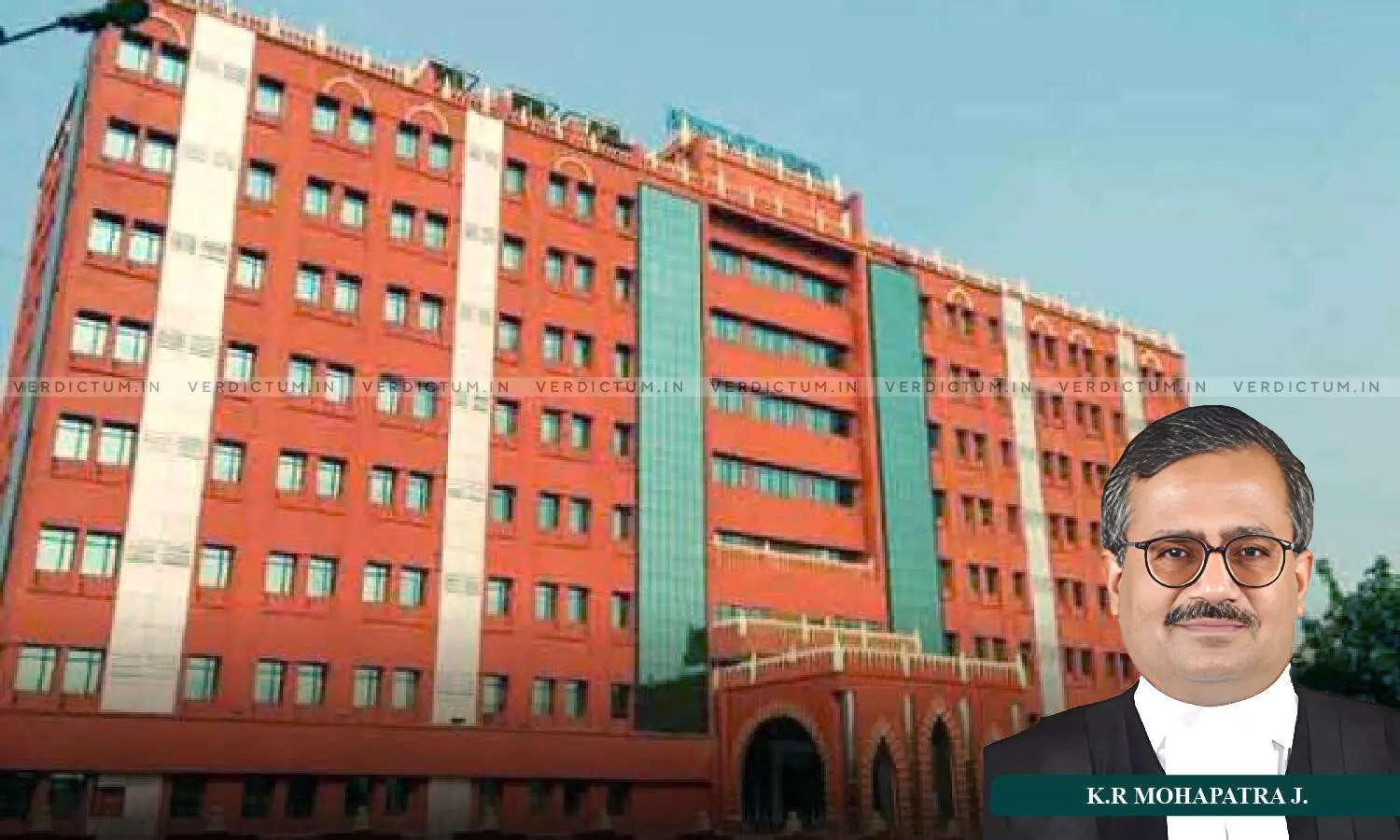
A ‘Legatee’ Includes His Or Her Legal Representative Also: Orissa High Court In Will Case
 |
|The Orissa High Court in a case relating to Will, held that a ‘legatee’ includes his/her legal representative also.
The Court held thus in petitions preferred against the composite order of the Civil Judge (Senior Division) by which two applications for substitution of deceased was dismissed.
A Single Bench of Justice K.R. Mohapatra observed, “In the instant case, both Trailokya and Sadananda are the universal legatees. In view of the provisions of the Act and case law discussed above, it can be safely said that a legatee includes his/her legal representative also. Thus, applying the principles in the case of Pramodini Pattanaik (supra), the Petitioners being the legal representatives of Sadananda, are competent to maintain and continue the proceeding for grant of Letters of Administration including the legal heirs of Trailokya, who have already been substituted.”
Advocate Bibekananda Bhuyan appeared for the petitioners while Senior Advocate Surya Prasad Misra appeared for the opposite parties.
In this case, one Saria Bewa executed her last WILL in 1984 in favour of two sons of Bhikari Maharana. After her death, the said two sons filed a miscellaneous case before the District Judge, Cuttack under Section 278 of the Indian Succession Act, 1925 for grant of Letters of Administration. Upon receipt of summons, the opposite parties appeared and during the pendency of the proceeding, one of the sons died in 2002 and his legal heirs were brought on record by substitution. Since the matter became contentious, case record was transferred to the Civil Judge to adjudicate the proceeding.
During the pendency of proceeding, another son died in 2016 and thus, an application was filed under Order XXII Rule 3 of the Civil Procedure Code (CPC) for substitution of the deceased. The said application was objected by the opposite parties and they filed an application, alleging that due to the deaths of the two sons, both the executors of the WILL, the probate proceeding cannot survive. The Trial Court passed a composite order holding that the probate can be granted only to an executor. Being aggrieved, the petitions were filed before the High Court.
The High Court in view of the above facts said, “Although Mr. Mishra, learned Senior Advocate contended that Trailokya and Sadananda were granted authority to probate the WILL only, but law does not prohibit them to file an application under Section 278 of the Act for grant of Letters of Administration. Even in a proceeding under Section 276 of the Act for grant of probate, the Court is competent in the facts and circumstances of a particular case to grant Letters of Administration, as would be clear from the ratio in the case of Dillip Kumar Mohapatra (supra). In the said case law, this Court observing in the fact and circumstances of the said case that no Probate can be granted, held that it would be appropriate for the Court to grant Letters of Administration with the WILL annexed, to the legatee under Section 232 of the Act.”
The Court noted that the provisions under Order XXII CPC is not strictly applicable to the provisions under the 1925 Act, but the principles laid down therein has application to the principles enumerated therein may be followed to regularize and to continue the proceeding under the provisions under the Act.
“As discussed earlier, a legatee includes his or her legal representative also. Thus, learned trial Court committed an error in refusing to substitute the legal heirs of Saria Bewa. … In view of the above, this Court answering the issue No.(i) holds that the proceedings in OS No.6 of 2015 is a proceeding for grant of Letters of Administration and not a Probate proceeding. In answer to the issue No.(ii), this Court holds that the legal representatives of Sadananda so also Trailokya can maintain and continue the proceeding filed under Section 278 of the Act”, it concluded.
Accordingly, the High Court allowed the petitions to an extent, set aside the composite order, and remitted the matter to the Civil Judge to adjudicate the matter in accordance with law by bringing on record the legal representatives.
Cause Title- Rabindra Moharana and Others v. Sulochana Bewa and Others
Appearance:
Petitioners: Advocate Bibekananda Bhuyan
Opposite Parties: Senior Advocate Surya Prasad Misra and Advocate E. Agarwal.